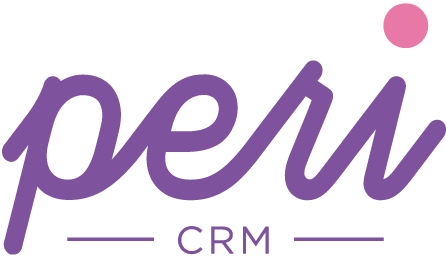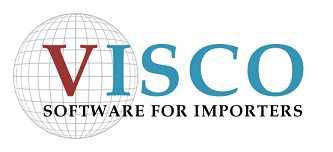Description

Peri CRM

ShipCompliant
Comprehensive Overview: Peri CRM vs ShipCompliant
Peri CRM and ShipCompliant are distinct solutions that cater to different aspects of business operations. Here’s an overview of each, including their primary functions, target markets, market presence, and differentiating factors:
Peri CRM
a) Primary Functions and Target Markets
- Primary Functions: Peri CRM is a Customer Relationship Management system designed to manage a company’s interactions with current and potential customers. It aims to streamline processes and improve profitability by organizing customer data, automating marketing, tracking sales, and facilitating customer service and support.
- Target Markets: Primarily small to medium-sized businesses across various industries, including retail, services, and tech, that are looking to improve customer engagement and sales processes.
b) Market Share and User Base
- Market Share: While specific data may vary, Peri CRM is typically a smaller, niche player in the broader CRM market, which is dominated by large entities like Salesforce, Microsoft Dynamics 365, and HubSpot.
- User Base: Typically comprised of smaller companies that prefer a solution tailored to specific needs at a lower cost, as opposed to large enterprises with complex CRM requirements.
c) Key Differentiating Factors
- Customization: Peri CRM often emphasizes customization and flexibility, allowing users to tailor the CRM to specific business needs and workflows.
- Cost-Effectiveness: More competitively priced, appealing to small businesses with limited budgets.
- Industry-Specific Features: Offers customized features that cater to specific industries or business models, distinguishing it from more generic CRM solutions.
ShipCompliant
a) Primary Functions and Target Markets
- Primary Functions: ShipCompliant is a compliance management software primarily for the alcohol beverage industry. It helps businesses navigate and manage complex regulations related to shipping, tax, and product registration.
- Target Markets: Wine, beer, and spirits producers and distributors, as well as retailers involved in direct-to-consumer sales, who need to ensure compliance with state and federal laws.
b) Market Share and User Base
- Market Share: ShipCompliant holds a strong position in its niche market within the alcohol industry due to its specialization and expertise in compliance.
- User Base: Includes wineries, breweries, distilleries, and alcohol retailers seeking to streamline their compliance processes and avoid legal pitfalls.
c) Key Differentiating Factors
- Compliance Focus: Unlike general business software, ShipCompliant specializes in ensuring compliance with alcohol-specific regulations, which is a highly specialized niche.
- Integration Capabilities: Integrates with other systems pertinent to the beverage industry, such as e-commerce platforms and accounting software, enhancing its value to businesses in this sector.
- Regulatory Updates: Regularly updates its features to align with changing regulations, providing businesses with confidence in maintaining compliance.
Comparison and Differentiation
- Functionality Focus: Peri CRM focuses on customer relationship management across industries, while ShipCompliant is specialized for compliance in the alcohol industry.
- Target Market: Peri CRM targets a broad range of small to medium-sized businesses, whereas ShipCompliant targets businesses specifically in the alcohol sector.
- Market Position: ShipCompliant, given its niche specialization, enjoys a unique market position compared to Peri CRM, which operates in a highly competitive and broader market.
- User Needs: Businesses that require comprehensive CRM solutions might prefer Peri CRM, while those needing specialized compliance tools in the alcohol space will find ShipCompliant more relevant.
Both Peri CRM and ShipCompliant serve distinct purposes and markets, with their key differentiators lying in the breadth of functionality versus specialized compliance needs.
Contact Info

Year founded :
2018
+91 96259 23517
Not Available
India
http://www.linkedin.com/company/pericrm

Year founded :
2000
+1 888-449-5285
Not Available
United States
Not Available
Feature Similarity Breakdown: Peri CRM, ShipCompliant
To provide an accurate and comprehensive comparison between Peri CRM and ShipCompliant, it's essential to highlight their core features, user interface (UI) design, and unique offerings. Here's a general breakdown, considering typical features and functionality based on known CRM and compliance software:
a) Core Features in Common
-
Customer Management: Both Peri CRM and ShipCompliant manage customer relationships by storing contact information, interaction history, and client data to improve customer service and sales strategies.
-
Reporting and Analytics: They offer reporting tools to help users make data-driven decisions and track performance metrics, though the specifics of the reports might differ.
-
Integration Capabilities: They can integrate with third-party applications and services, facilitating data flow between different business systems.
-
Automation: Both platforms likely offer automation features to streamline tasks such as follow-ups, notifications, or compliance checks.
-
Compliance Features: While ShipCompliant is specifically designed for compliance, Peri CRM might offer basic compliance tools for managing customer data and adhering to privacy standards.
b) User Interface Comparison
-
Peri CRM: Typically, CRM systems focus on intuitive UI for sales teams, with dashboards that provide quick access to customer data, sales pipelines, and activity reminders. They often emphasize simplicity and ease of use to encourage daily use by sales representatives.
-
ShipCompliant: As a compliance-focused tool, the UI is likely more specialized with dedicated features for managing complex compliance workflows, regulatory updates, and filing requirements. The interface may focus on clarity and precision to ensure users can quickly identify and address compliance issues.
c) Unique Features
-
Peri CRM:
- Sales Funnel Visualization: Allows users to track sales progress and forecasts through customizable pipelines and stages.
- Lead Scoring: Helps in prioritizing leads based on defined criteria to optimize sales efforts.
-
ShipCompliant:
- Regulatory Compliance Management: Provides specialized tools for tracking and ensuring compliance with state and federal regulations, particularly for industries like alcohol and cannabis.
- Tax Automation: Manages complicated tax calculations and filing processes specific to heavily regulated industries.
- Three-Tier Distribution Management: Offers tools to facilitate compliance in the three-tier distribution system prevalent in the alcohol industry.
In summary, while there might be some overlap in basic functionalities like customer management and reporting, the unique selling proposition of ShipCompliant is its focus on compliance, particularly for regulated industries, while Peri CRM may cater more broadly to relationship and sales management within companies.
Features

Not Available

Not Available
Best Fit Use Cases: Peri CRM, ShipCompliant
Peri CRM
a) Best Fit Use Cases for Peri CRM
Types of Businesses or Projects:
-
Small to Medium Enterprises (SMEs): Peri CRM is well-suited for SMEs looking for a cost-effective solution to manage customer relationships efficiently. Its feature set is typically tailored to support businesses focusing on growth without needing the extensive customizability or complexity of an enterprise-level CRM.
-
Service-based Industries: Companies that revolve around client relationships and service delivery, such as consulting firms, agencies, or personal services, often benefit from the customer engagement and communication features offered by Peri CRM.
-
Sales-focused Organizations: Businesses with a strong sales component can leverage Peri CRM’s tools for managing lead pipelines, tracking customer interactions, and optimizing sales processes.
-
Project-based Workflows: Firms that handle multiple client projects simultaneously, such as marketing agencies or design studios, may find Peri CRM useful for organizing tasks and tracking project-based customer interactions.
-
Growing Startups: Startups in their growth phase benefit from the automation and scalability provided by Peri CRM, helping them to manage an increasing customer base effectively.
ShipCompliant
b) Best Fit Use Cases for ShipCompliant
Scenarios Where ShipCompliant is Preferred:
-
Alcohol Beverage Industry: ShipCompliant is specifically designed for businesses in the alcohol beverage industry, assisting wineries, breweries, distilleries, and retailers with compliance, tax, and shipping logistics.
-
Regulated Product Shipping: Companies dealing with products requiring rigorous compliance documentation, especially those needing to adhere to federal and state regulations, benefit greatly from ShipCompliant’s capabilities.
-
E-Commerce in Alcohol Sales: Online retailers selling alcohol must navigate complex shipping laws and taxes. ShipCompliant streamlines these processes and ensures compliance.
-
Multi-state Distribution: Businesses that distribute to multiple states find ShipCompliant invaluable for managing differing state regulations and tax rates efficiently.
-
Direct-to-Consumer (DTC) Sales: Companies engaging in direct-to-consumer sales within the alcohol industry rely on ShipCompliant to handle the unique logistics and compliance challenges of DTC shipping.
Catering to Different Industry Verticals or Company Sizes
-
Peri CRM:
- Industry Vertical Adaptability: Peri CRM can be adapted to a variety of verticals that focus on customer service, sales, and project management. Its versatility makes it relevant to industries like real estate, healthcare, and professional services.
- Company Size Flexibility: Primarily aimed at small to medium-sized businesses. Its simplicity and ease of use make it an attractive option for companies that do not require enterprise-level customization.
-
ShipCompliant:
- Industry Specificity: ShipCompliant is highly specialized for the alcohol beverage industry. Its focus on regulatory compliance and shipping logistics is tailored for this vertical and is not typically applicable to other industries.
- Scalability Across Company Sizes: It caters to businesses of all sizes within its niche, from small wineries that need to manage local shipments to large distributors handling complex, multi-state logistics.
Both Peri CRM and ShipCompliant cater to specific needs within their target industries and company sizes, with Peri CRM providing broad CRM functionality for general businesses and ShipCompliant offering niche solutions for compliance and logistics within the alcohol industry.
Pricing

Pricing Not Available

Pricing Not Available
Metrics History
Metrics History
Comparing teamSize across companies
Conclusion & Final Verdict: Peri CRM vs ShipCompliant
Conclusion and Final Verdict: Peri CRM vs. ShipCompliant
Choosing between Peri CRM and ShipCompliant depends on several factors, such as business needs, budget, and specific functional requirements. Both systems serve different primary purposes and have their unique strengths and weaknesses.
a) Best Overall Value:
When considering which product offers the best overall value, it's crucial to define the primary needs of your business. Peri CRM typically provides more value if your primary objective is to enhance customer relationship management across various channels and improve sales processes. It focuses on customer engagement, sales tracking, and internal business processes.
On the other hand, ShipCompliant offers the best value if your business needs focus heavily on compliance and logistical operations, particularly if you're in the beverage alcohol industry where specific regulatory requirements must be met consistently. ShipCompliant excels in helping businesses manage complex regulatory landscapes and ensures compliance with state and federal laws.
Therefore, the best overall value is context-dependent:
- Peri CRM for businesses primarily needing robust CRM capabilities.
- ShipCompliant for businesses with strict compliance needs in industries like alcohol distribution.
b) Pros and Cons:
Peri CRM:
-
Pros:
- Comprehensive CRM functionalities.
- Enhanced customer insights and analytics.
- Customizable sales processes and automation features.
- Suitable for businesses seeking growth through improved customer relationships.
-
Cons:
- May not cater well to industry-specific compliance needs.
- Can be complex to implement if the focus isn't on CRM-centric operations.
- Might require integration with other tools for compliance or specialized logistics.
ShipCompliant:
-
Pros:
- Strong compliance management tools, particularly for regulated industries.
- Simplifies logistics and supply chain operations within specific industries.
- Reduces risk of fines and penalties by ensuring proper regulatory compliance.
-
Cons:
- Limited CRM features.
- Not suitable for businesses without stringent regulatory requirements.
- Can be an additional overhead if compliance isn't a primary concern.
c) Recommendations for Users:
-
Identify Core Needs: Determine whether your primary focus is on customer relationship management or regulatory compliance. Businesses requiring efficient customer interactions and sales processes may benefit more from Peri CRM. In contrast, those needing thorough compliance solutions should consider ShipCompliant.
-
Evaluate Industry Requirements: If your industry has stringent compliance needs (e.g., beverage alcohol), ShipCompliant may be indispensable. For businesses in less regulated industries, Peri CRM could offer more relevant features.
-
Consider Integration Possibilities: Assess whether integrating both platforms (if budget and resources allow) could provide a comprehensive solution by allowing one to handle CRM tasks and the other to manage compliance.
Ultimately, the decision should be guided by aligning the software's strengths with the strategic goals and operational needs of your business. Consider a trial or demonstration of each product to better understand how each could fit into your existing ecosystem, and consult with stakeholders to prioritize features according to business objectives.
Add to compare
Add similar companies



